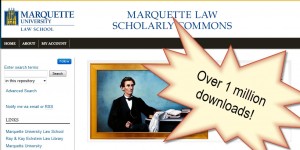The Eighth Amendment and Life Without Parole for Adults
My new article, “Not Just Kid Stuff? Extending Graham and Miller to Adults,” is now available on SSRN. Here’s the abstract:
The United States Supreme Court has recently recognized new constitutional limitations on the use of life-without-parole (LWOP) sentences for juvenile offenders, but has not clearly indicated whether analogous limitations apply to the sentencing of adults. However, the Court’s treatment of LWOP as a qualitatively different and intrinsically more troubling punishment than any other sentence of incarceration does provide a plausible basis for adults to challenge their LWOP sentences, particularly when they have been imposed for nonviolent offenses or on a mandatory basis. At the same time, the Court’s Eighth Amendment reasoning suggests some reluctance to overturn sentencing practices that are in widespread use or otherwise seem to reflect deliberate, majoritarian decisionmaking. This Essay thus suggests a balancing test of sorts that may help to account for the Court’s varied Eighth Amendment decisions in noncapital cases since 1991. The Essay concludes by considering how this balancing approach might apply to the mandatory LWOP sentence established by 21 U.S.C. §841(b)(1)(A) for repeat drug offenders.
The article will appear in print in a forthcoming symposium issue of the Missouri Law Review devoted to the Supreme Court’s year-old decision in Miller v. Alabama.

